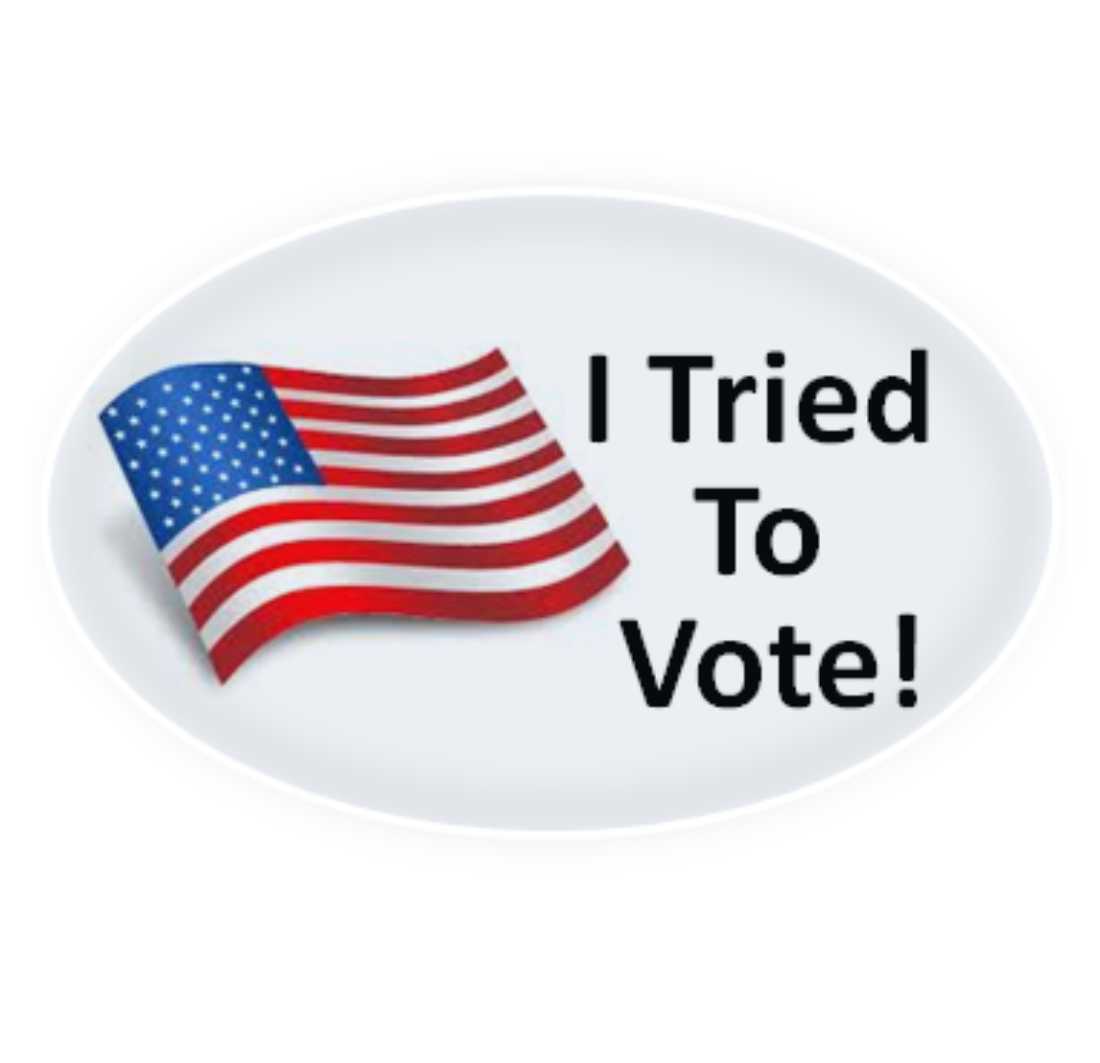Static loves the smell of democracy in the morning. On Nov. 5, Texas will be holding elections on nine proposed constitutional amendments. For the most part, the measures aren’t the stuff of bumper stickers or rallies, but still — vote or give up the right to bitch, no?
But the coming election is significant for reasons beyond what is on the ballot. It will be the first in which the state’s controversial voter ID law goes into effect. Critics have characterized the law as nothing more than a barrier to the voting booth for minority citizens. But the law could also affect women in a clear case of “If they won’t vote for you, make it hard for them to vote at all.” Seems the GOP in Texas is willing to limit a woman’s right to do just about anything.
The new law requires voters to show a photo ID that carries their current name. According to a study by the Brennan Center for Justice, only about 66 percent of women have an ID card that qualifies.
If a voter, say, a woman who has recently taken her husband’s last name, has a driver’s license with a different name than what’s on the voter rolls, the law requires her to present an original or certified copy of their marriage license. Or divorce decree, if she took her maiden name back, or other court-ordered name change.
So if a woman has never registered to vote under her married name, she can’t cast a ballot unless she finds her marriage certificate. If a woman who has been divorced and changed her name can’t find her decree, she can’t vote either.
Static’s grandmother has been divorced and re-married and changed her name twice. She can’t find her arthritis medicine on most days, let alone a document that was created at a Las Vegas drive-through wedding chapel. (Static’s Nana has some stories). In fact, Static doesn’t know where its own birth certificate is.
But fear not, Nana, (or anyone else who is worried how the new law will affect him or her). A website created by The Texas Research Institute and Progress Texas, an advocacy group promoting what it calls progressive ideals, explains what people need in order to vote and how to get it. Assuming, of course, that my grandmother can learn how to get online.
The voter ID law is like a Republican “greatest hits” law. It limits the rights of women, requires a birth certificate, and suppresses minorities. The smell of democracy just turned a little sour.












Vote NO on the FWISD Bond.
Slate argues that Texas’ voter ID law will actually suppress Republican women’s votes:
http://www.slate.com/articles/double_x/doublex/2013/10/how_voter_id_laws_might_suppress_the_votes_of_women_republican_women.html
Well if Static was a good grandson and visit granny more than just Christmas day, he could have helped her find it and secured the information in a safe place, a security box maybe. When my parents showed signs of ageing and forgetfulness I drove 1500 miles to join my siblings and get everything together in one place, So we would have their will and all other documents needed. If he cannot find his own birth Certificate that’s just bad records keeping and a personal problem.
This Law is not to stop anyone who is a Legal citizen from voting. You need pictured ID to cash checks, buy smokes, chew, drive and sign up for Medicare.
yea but when you “cash checks, buy smokes, chew, drive and sign up for Medicare” the name on your ID doesn’t neccessarily have to match that on your divorce decree or birth certificate.
Static ended with a standard Liberal rally cry: That voter ID laws supress minority voters (and Republicans like it). This claim has failed because those making it haven’t produced real people, minorites whose votes have been or will be supressed by voter ID laws. Liberals’ new claim is that such laws supress the female voter, such as Static’s arthritic grandmother. Voting is a right, but there’s no constitutional guarantee that a voter bear no inconvenience whatever in exercising the right. If Static’s grandmother is the Liberals’ best evidence that the voter ID law supresses the female vote, I’d say their case is pretty shaky.
“If a voter, say, a woman who has recently taken her husband’s last name, has a driver’s license with a different name than what’s on the voter rolls, the law requires her to present an original or certified copy of their marriage license. Or divorce decree, if she took her maiden name back, or other court-ordered name change.”
This is why you have the convenient choice of updating your voter’s registration name simultaneously with updating your driver’s license name by checking a box on the driver’s license application you are already filling out.
“So if a woman has never registered to vote under her married name, she can’t cast a ballot unless she finds her marriage certificate. If a woman who has been divorced and changed her name can’t find her decree, she can’t vote either.”
She absolutely can vote. All she has to do is tell the voting registrar in writing about the change prior to election day. If she is competent enough to register to vote, she’s competent enough to provide notification. Since we are all afforded the right to vote, the limits we succumb to are limits we placed on ourselves.
“Static’s grandmother has been divorced and re-married and changed her name twice. She can’t find her arthritis medicine on most days, let alone a document that was created at a Las Vegas drive-through wedding chapel. (Static’s Nana has some stories). In fact, Static doesn’t know where its own birth certificate is.”
The counties in which we marry, divorce and give birth have your certificates. Get with the program.
“A website created by The Texas Research Institute and Progress Texas, an advocacy group promoting what it calls progressive ideals, explains what people need in order to vote and how to get it. Assuming, of course, that my grandmother can learn how to get online.”
This is where you fail. Nana and her generation get this information from newspapers. If you actually cared about perceived forced voting limitations, you would list what people need to vote and how to get it instead of wasting space with that sentence. Journalism allows for, and sometimes downright encourages, the dissemination of real information on occasion.
“The voter ID law is like a Republican “greatest hits” law. It limits the rights of women, requires a birth certificate, and suppresses minorities. ”
As a side-note, this is your misinformed opinion, for which you have yet to explain. It would benefit you and your readership to keep these opinions to yourself. Maybe write your next piece on something you know about or something you are willing to research. The choice is yours.
Bless your heart.